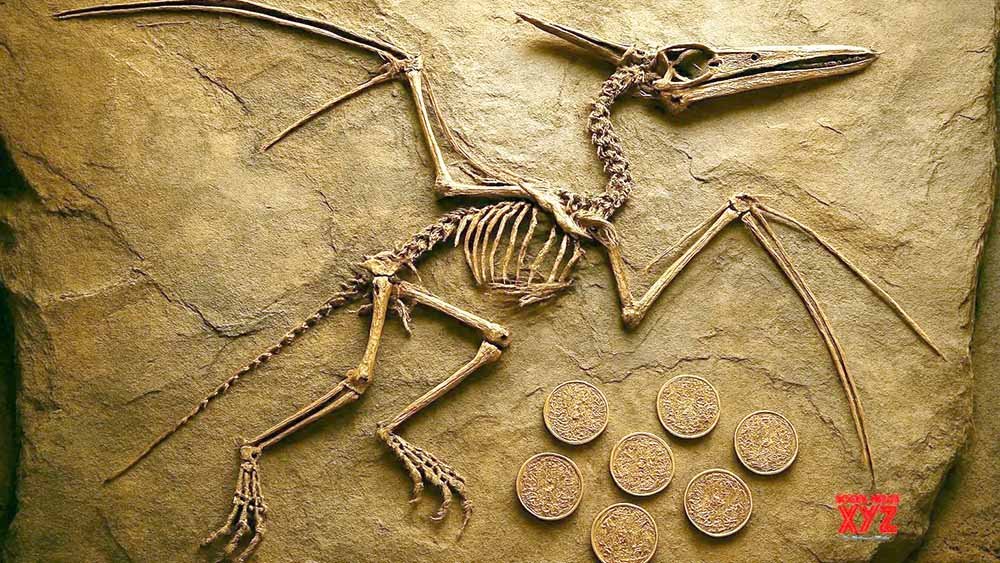A team led by Professor V S Parihar, dean of the faculty of Earth System Science at Jai Narayan Vyas University, Jodhpur, unearthed a phytosaur fossil — the first-ever in India — from Jurassic rocks in Jaisalmer’s Megha village. This 20-crore-year-old fossil, resembling a crocodile, marks a significant milestone in understanding India’s prehistoric life.
The fossil, discovered on Aug 21, is being meticulously studied by the team. Measuring between 1.5 and 2 metres, the skeleton suggests a medium-sized phytosaur, an ancient reptile that thrived near forested river ecosystems. An egg found nearby further enriches the discovery, hinting at the creature’s reproductive habits.
Phytosaurs, often considered primitive crocodiles, survived the Permian-Triassic mass extinction. The fossils, dating back to the early Jurassic period, originate from the Lathi Formation in the Jaisalmer Basin. Geological evidence suggests these reptiles were piscivores (feeding on fishes), playing a crucial role in ancient river ecosystems.
Parihar’s team, including Anshul Harsh and Pawan Kumar, identified the fossil as a terrestrial crocodile. The discovery in Megha village is India’s first and the world’s second such find, reinforcing the evidence of the dinosaur era in Jaisalmer. These creatures roamed the Earth around 20 crore years ago. Narayan Das Inkhia, senior geologist, who spearheaded the discovery, and the geological team are carefully excavating the area, which is showing signs of having more dinosaur fossils.
Inkhia emphasized Jaisalmer’s growing significance in India’s geological heritage. The discovery of vertebrate fossils in Megha village marks a new chapter, with the rare Jurassic-era phytosaurus fossil offering invaluable insights. Parihar described the find as historic, poised to give Indian geology a distinct identity.
The hill in Megha village, where the fossil was found, extends over nearly 20km to the Akal Wood Fossil Park. Composed mainly of sandstone, marl ironstone, and calcium stone from the Lathi Formation, the hill is geologically linked to the Jurassic period.
(The Times of India) To preserve this invaluable heritage, the district administration fenced off the area, ensuring the protection of this fossil trove. The discovery has followed just days after Inkhia and his team reported vertebrate fossils near a pond in Megha village, which initial observations suggest may belong to a creature about eight to 10 feet long with wings, possibly that of a flying herbivorous dinosaur. (The Times of India)
Wednesday, February 25, 2026

